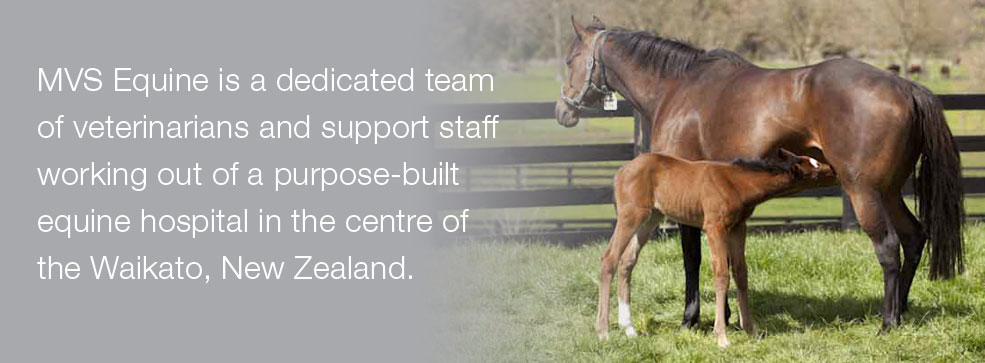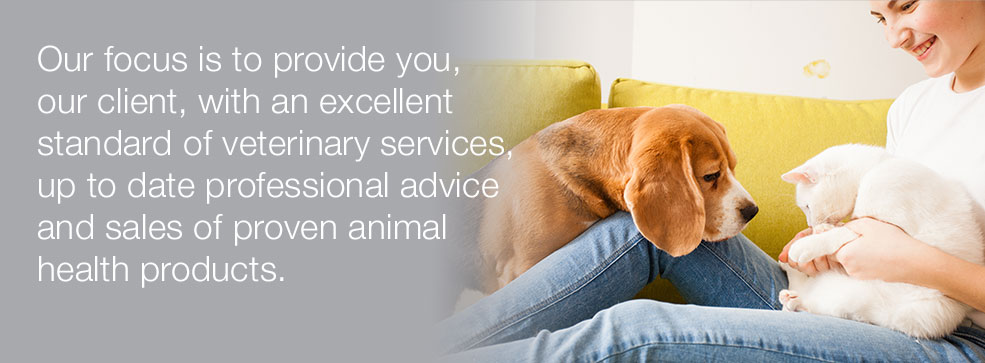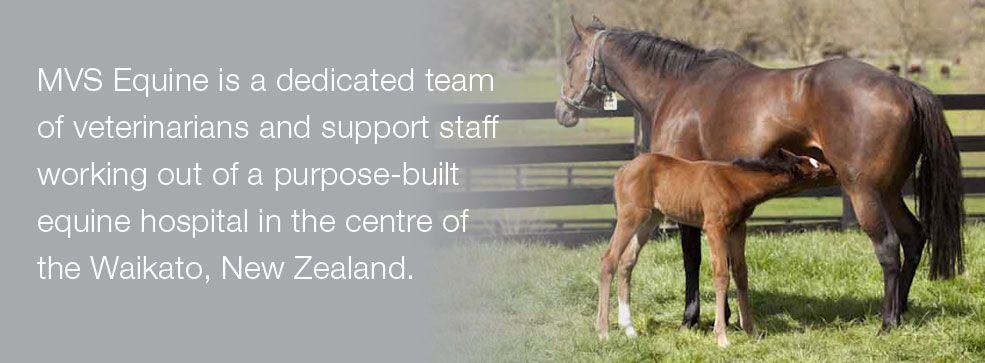September 20, 2018
Click below to find information on:
- Choosing a puppy
- Dog and Puppy Vaccinations
- Worming for Cats and Dogs
- Flea Treatment for Cats and Dogs
- Dog Registration
- Microchipping for Cats and Dogs
- Desexing for Cats and Dogs
- Nutrition for Cats and Dogs
- Dentistry for cats and dogs
- Ageing Animals
- Euthanasia
- Dog Safety Tips for Kids
- Cat and Kitten Vaccinations
- Feline Immunodeficiency Virus (FIV)
- Pet Insurance
To keep up with us!
To keep up with what is going on at the clinic please see “Latest News”
Pet Insurance
April 11, 2015
When your pet becomes sick, or suffers from an injury the last thing you want to be worrying about is how you will pay the veterinary bill.
A broken bone or ligament surgery can cost upwards of $2000, the bone or tennis ball the dog swallowed >$1500, or the cat with bladder stones >$1500. It isn’t possible to prevent all of these mishaps, but it can help the stress levels to be able to make decisions without financial restrictions.
Pet insurance is becoming more and more common in New Zealand. There are many different plans to cover different types of pets in a bronze, silver, gold type system. Some companies will have limits on surgical and medical claims and some require you to pay a percentage of the claim. This is all reflected in the amount per week you pay. You can now even get trauma insurance for your pets for a reduced rate. This can for example cover those nasty cat bites that end in surgical abscesses, or road traffic accidents.
It is very important when you choose an insurance provider, that you assess what is covered. Some companies exclude breed specific diseases, pre-existing diseases, and dental procedures. This makes it more beneficial to start pet insurance as early in your pet’s life as possible.
Having been involved in many decisions with owners about their pets and which treatment options are possible, we can highly recommend insurance as a way to provide the best care for your pet. If you have any queries about insurance, we would be only to happy to help.
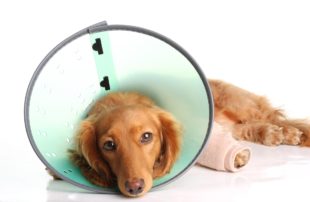
Feline Immunodeficiency Virus (FIV)
May 23, 2012
What is feline AIDS
Feline Aids is caused by infection with feline immunodeficiency virus (FIV). FIV causes a potentially fatal viral disease that interferes with the immune system of a cat. The virus lives in the blood of the infected cat and is carried in its system throughout its life. Infected cats may expose healthy cats with which they come in contact, mostly by biting.
Cats infected with FIV may remain healthy for up to 10 years. While some infected cats show no sign of the disease, others may display initial symptoms such as:
- Fever
- Loss of appetite
- Diarrhoea
- Lethargy
- Swollen Lymph nodes
As the disease progresses, symptoms may occur such as:
- Weight loss
- Sores in and around the mouth
- Eye lesions
- Poor coat
- Chronic infections
Eventually the immune system becomes too weak to fight off other infections or diseases. As a result, the cat will die from one of these subsequent infections.
How prevalent is feline AIDS?
It is reported that between 14% and 29% of cats in New Zealand test positive to the disease.
How is the disease contracted?
FIV is spread from cat to cat primarily through bite wounds, the virus being shed in high levels through saliva. Cats with outside access are at risk of contracting the disease due the territorial nature and fighting that occurs. The spread of FIV through watering bowls or grooming is unlikely. An actual bite wound is an integral part of the disease transmission. Although rare it is possible for a mother to pass the infection on to her unborn foetus. Even though the feline virus is related to human immunodeficiency virus (HIV), no human has ever been reported to be infected with FIV.
What can I do to prevent feline AIDS?
Keeping your cat indoors and away from other cats will prevent infection, however most of our New Zealand cats love to go outside and are therefore at risk.
Vaccination is the best way to prevent the disease in at-risk cats. There is no treatment or cure for an FIV infected cat. A vaccine is available that can aid in the prevention of infection by FIV.
The vaccination course requires 3 injections 2-4 weeks apart, and then an annual booster shot is needed to ensure adequate immunity. Vaccination can start as young as 8 weeks.
If you are looking to start vaccination in an older cat that could have been in a fight or bitten by other unknown status cats then a blood test prior to vaccination is warranted.
Please don’t hesitate to call us for any further information or to book your cat in for the vaccination course.
Cat and Kitten Vaccinations
May 23, 2012
We can start vaccinations from 6-8 weeks of age, but some kittens will be given their first vaccinations with the breeder.
Thereafter vaccines will be given every 4 weeks until they are over 16 weeks old (as per the World Small Animal Veterinary Association guidelines)
A final kitten booster is then given once they are over 26 weeks ( ie 6 months) and from then an annual health check and vaccinations
These vaccines are to protect against Feline Panleukopoenia and the respiratory diseases of Herpes Virus and Calicivirus.
Cats at high risk of respiratory virus infection may need annual boosters.
Feline Immunodeficiency Virus (FIV) vaccination is sometimes recommended for at risk cats. Fighting is the single biggest risk factor.

Dog Safety Tips For Kids
May 23, 2012
Check its sweet before you meet!
Before going up to a dog ask permission from its owner.
Lots of dogs are friendly, but some aren’t. The owner can tell you if it is safe to go up to their dog. But still be careful. Let the dog approach you – don’t chase it if it moves away, it might not feel like meeting you that day.
To understand – they sniff your hand!
When meeting a dog let it sniff the back of your hand.
Dogs have a sense of smell that is 50 times stronger than ours. Dogs use their sense of smell to get to know strangers. Using the back of your hand keeps your fingers out of the way. Let the dog come up to you and sniff – don’t push your hand under the dog’s nose.
Chin or chest – thats the best!
After permission is given, stroke only the dog’s chin, chest or shoulders and remember to be gentle.
Dogs don’t really like being patted on their heads by strangers. They might think you are trying to hurt them.
To meet a pup – ask a grown-up!
Ask an adult before cuddling a puppy.
Mother dogs are naturally protective and may growl or snap at you to protect their puppies. But even if a puppy’s mother isn’t there, puppies can bite, jump and scratch like older dogs– so be careful and gentle. Puppies and adult dogs don’t like being picked up and hugged or kissed.
If a dog has a snack – keep well back!
Stay away from a dog that is eating or has a bone.
When they are eating, dogs might think you want to take some of their food if you try to pat them. They want to protect their food.
Keep your face – out of their space!
Never kiss or put your face down close to a dog’s face.
It’s just common sense for you to keep your face away from a dog’s teeth. Even if it doesn’t want to nip you it could hurt you accidently.
Don’t run and shout – it freaks us out!
Do not run around or shout near a dog.
Dogs react to the way we behave. If you shout or run a dog might chase or attack you. Playing fetch or obedience games with your dog is better than playing chase or tug of war games.
A dog’s not a toy – don’t tease and annoy!
Never tease, hurt or annoy a dog.
Dogs can tell us to stop only by growling or biting. Don’t tease a dog by waving food or a toy in front of it – the dog might make a grab for the food or toy and hurt you by mistake.
Quiet and slow – is the way to go!
If you are scared of a dog, move quietly and slowly away from it.
Don’t run. Stand like a tree – stand still, look at your feet and keep your arms in front of you. Don’t scream or shout. Walk away quietly and slowly. Don’t stare at the dog as you move away. If you stare, a dog might think you want to fight.

Euthanasia
May 23, 2012
Losing a family pet can be as traumatic as losing a member of family. We understand the grief and sadness that can be overwhelming at this time. Although Euthanasia is often the best option for the pet, the decision can still feel impossibly hard. Our team of vets, nurses and support staff aim to help owners through this difficult time and offer the following services:
- House calls for euthanasia upon request
- Cremation
- Cremation and return of ashes. This service is performed by Pet Farewells in Hamilton. They are a trusted pet cremation service www.petfarewells.co.nz
Ageing animals
May 23, 2012
Seeing your pet grow old is like watching a family member age. As we grow older, regular health checks are increasingly important. This is also true for our pets. Pets can experience the same aches, pains and health problems associated with ageing in humans. Older dogs are at higher risk for diabetes, arthritis, heart disease, kidney disease, cancer and other serious conditions.
Many of these health problems are treatable if diagnosed in time but, unfortunately, many pets don’t see their veterinarian as often as they should. Taking your dog or cat to the vet once a year is the same as a person seeing their doctor or dentist once every seven years! You wouldn’t wait seven years to see your doctor for a check-up, so why wait a whole year to have your pet examined by their vet? The greatest percentage of disease occurs in an animal’s later years so regular health checks are essential.
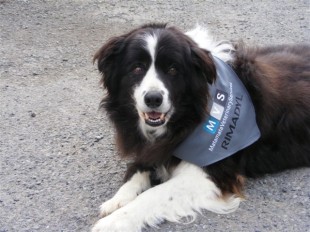
Dentistry for cats and dogs
May 23, 2012
Plaque and tartar accumulation are a common finding in our pets and can quickly cause gum infection, tooth root disease pain and infection in the blood stream, heart and kidneys. We believe pets deserve the best in dental care, so provide the best dental services we can.
All of our dental patients are under a full general anaesthetic with intubation to protect their airways from the moisture of the dental procedure. They are placed on a warming pad with warm blankets over their bodies and have monitoring equipment to include pulse oximetry (monitoring heart rate and blood oxygenation), respiratory and blood pressure where needed.
Intravenous fluids are administered using an automated drip pump to ensure accurate fluid administration.
Teeth are charted before and after the dental and photos can be taken to show owners the difference the dental procedure can make.
Pain relief is given in the form of oral nerve blocks, opioids, and post-op non-steroidal anti-inflammatories. Antibiotics are given when necessary.
We have a high speed iM3 GS deluxe LED dental cart with an iM3 scaler, which allows our vets to give the safest and most effective dental care available.
Our CR 7 VET Digital Dental X-ray processor allows us to quickly and safely assess the health of your pets teeth prior and/or during your pets dental.
After the dental procedure we are able to have a detailed consultation with you to help maintain your pet’s oral health to minimise the need for dental procedures in the future.
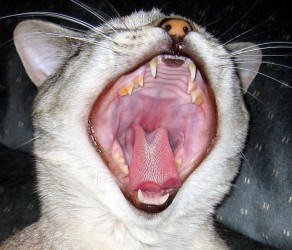
Nutrition for cats and dogs
May 21, 2012
As with humans, nutrition is the basis of good health in animals. Overweight or underweight animals can have serious health problems later in life.
Puppies (less than one year)
- Small and medium breed puppies should be on a growth, small or medium breed puppy diet
- Large breed puppies should be on a large breed diet (large breeds are classified as any puppy that will be over 25kg as an adult eg.Labrador) until 18 – 24 months of age.
- No supplementation is needed as they are getting a balanced diet from the puppy food (ie calcium and phosphorous rates
Adults (one to seven years old)
- Adult dogs should be on a maintenance adult food as per their breed size (small, medium, large)
- No supplementation is needed as they are getting a balanced diet
Mature (over seven years old)
- Mature dogs should be on mature food as per their breed size (small, medium, large)
- Special diets are available for pets who experience joint pain, which is common in older animals.
Never feed cooked bones to your dog as they can splinter and cause blockages resulting in vomiting and constipation. You also need to be aware that raw chicken can contain salmonella and may also cause gastric problems with your dog.
Biscuits as a predominant diet are usually easier to deal with. Wet food is made up of 80% water and tends to stick to their teeth and can cause tooth decay. Dry biscuits are better for their teeth and cleaner for their owner to deal with. Pets on dry food need regular access to fresh clean water
Cats and Kittens
- Kittens should be on a good quality diet formulated especially for kittens. Cats have very different nutritional requirements to dogs and should not be fed on dog food. Avoid significant amounts of meat in the diet as this is low in calcium and will result in bone defects. They should stay on this diet until around 12 months of age.
- No supplementation is needed as they are getting a balanced diet from the kitten food.
- From around 8-10 years of age cats should be on a mature cat food.
- Dry foods are usually better for your cat and more convenient to use. They are better for the teeth and have consistent ingredients. When buying wet food you are purchasing 80% water.
Please note that de-sexed animals may need 25% less food than non-desexed animals. This is because de-sexed animals are more prone to putting on weight.
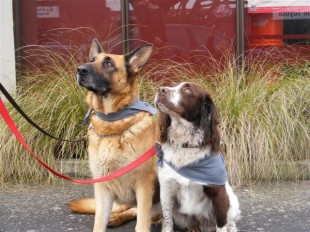
Desexing for cats and dogs
May 21, 2012
Kittens can be desexed from as young as 10 weeks and this is common in rehoming shelters, such as the Animal Trust. You can however wait until 4-5 months.
There are different age recommendations for de sexing of dogs based on their breed and sex. Please discuss this with your vet at your puppies next vaccination appointment or phone the clinic on 07 888 8197 for further advice.
Please discuss this with your vet at your pet’s puppy/kitten vaccinations.


